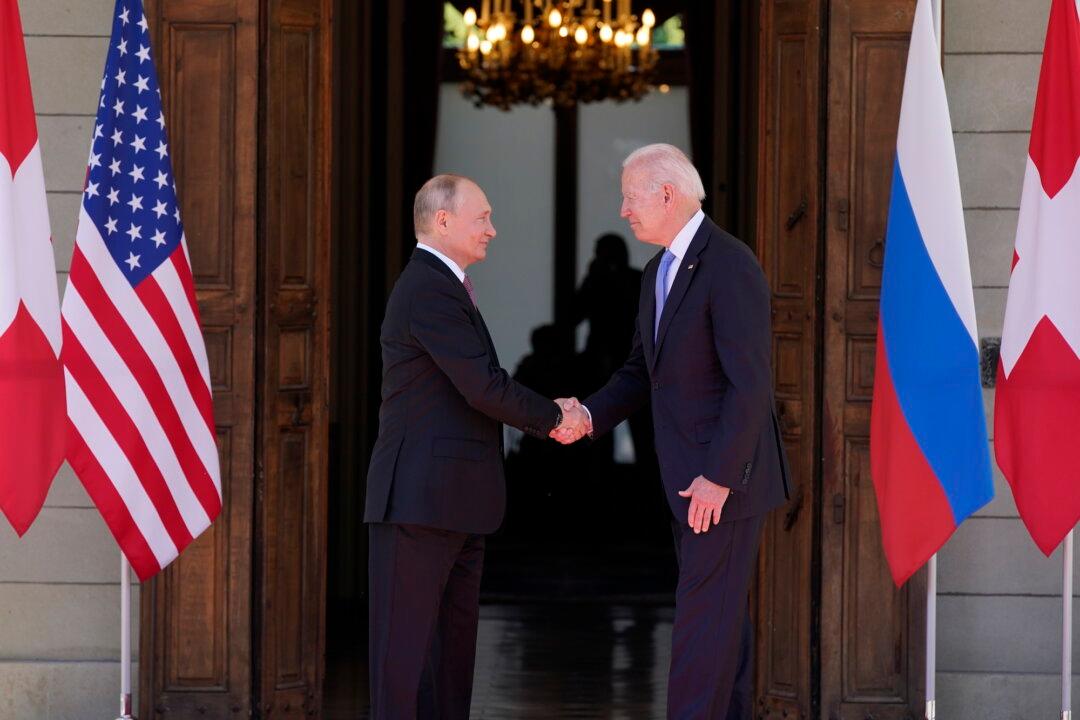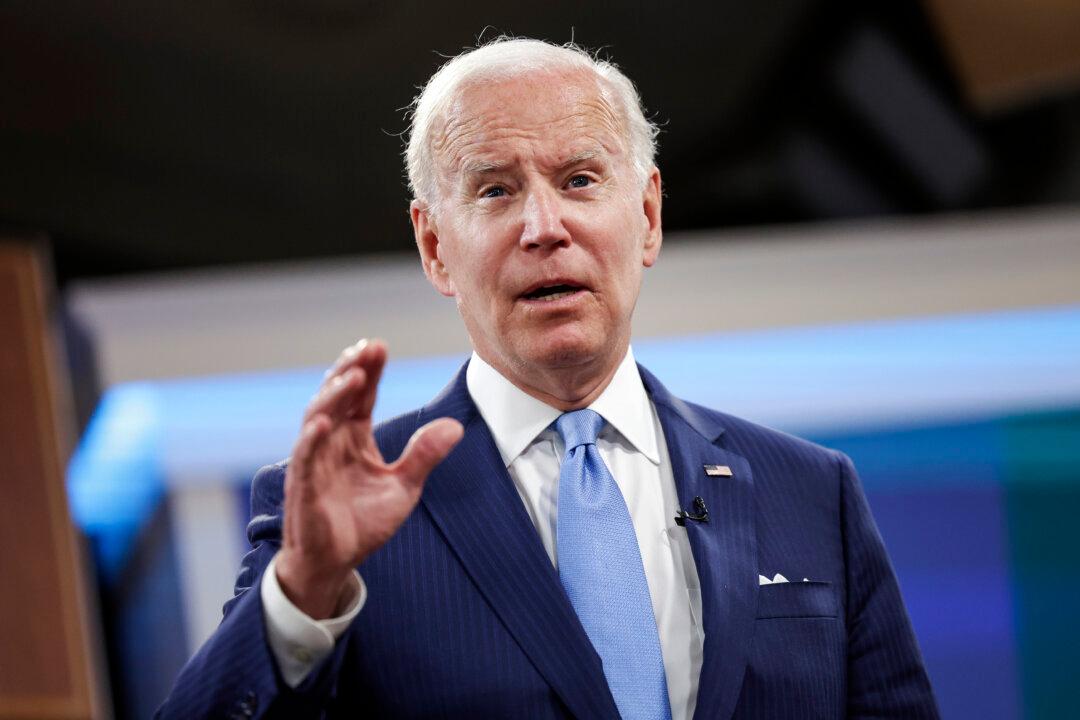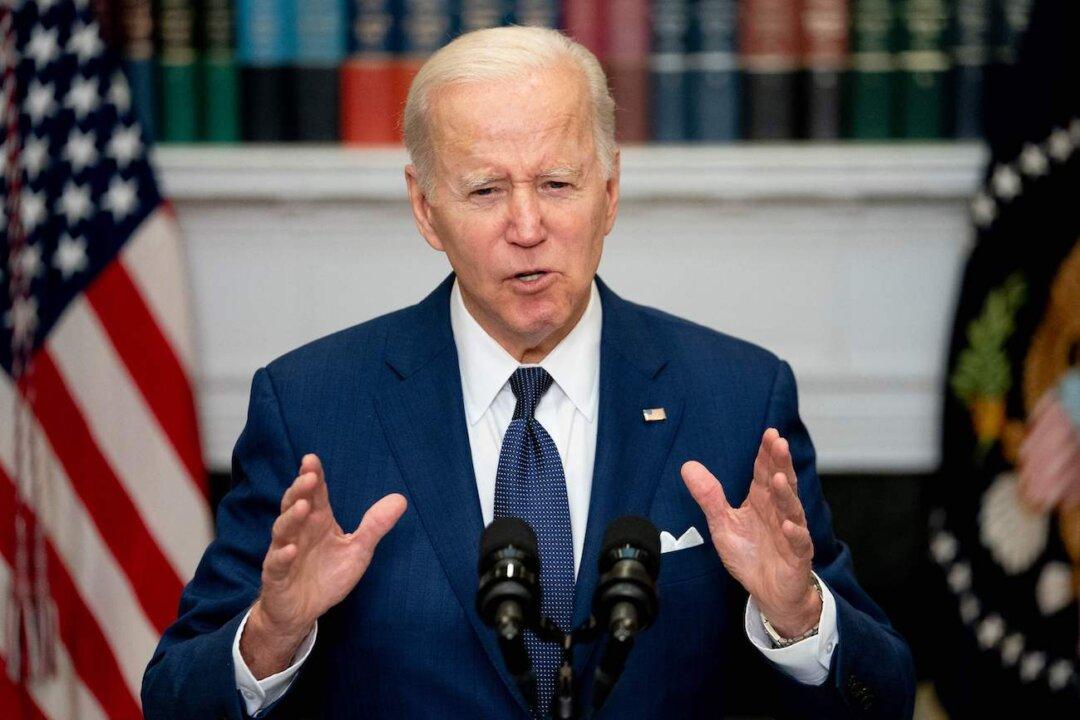President Joe Biden told Russian President Vladimir Putin that the United States and its allies would respond “with strong economic and other measures” in the event of Russian military escalation against Ukraine.
The two leaders took part in a two-hour bilateral video call Tuesday, Dec. 7. The call started shortly after 10 a.m. and finished shortly after noon.




